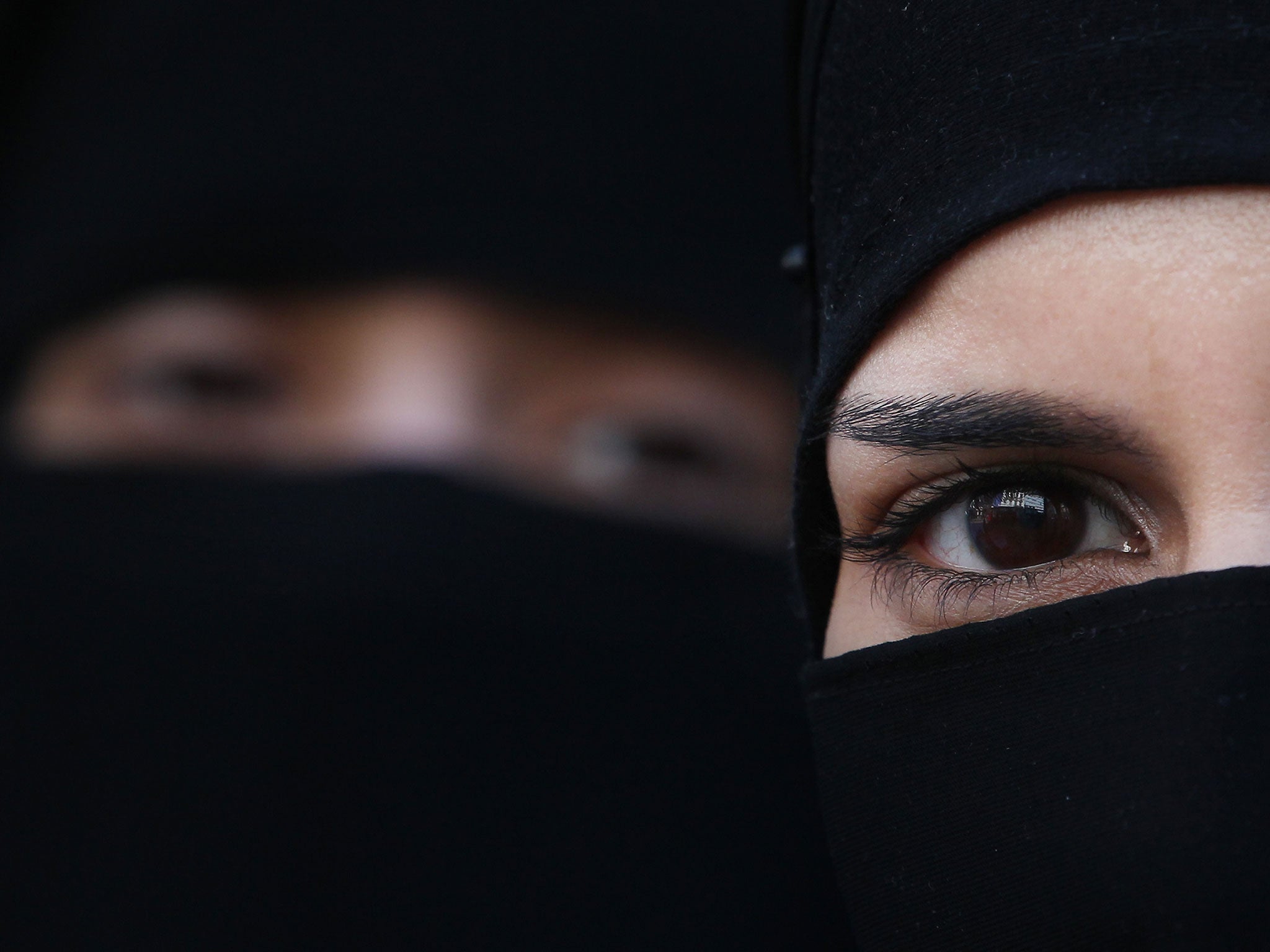Paris attacks: Women targeted as hate crime against British Muslims soars following terrorist atrocity
Figures show 115 Islamophobic attacks in the week following the Paris killings, a spike of more than 300%

Your support helps us to tell the story
From reproductive rights to climate change to Big Tech, The Independent is on the ground when the story is developing. Whether it's investigating the financials of Elon Musk's pro-Trump PAC or producing our latest documentary, 'The A Word', which shines a light on the American women fighting for reproductive rights, we know how important it is to parse out the facts from the messaging.
At such a critical moment in US history, we need reporters on the ground. Your donation allows us to keep sending journalists to speak to both sides of the story.
The Independent is trusted by Americans across the entire political spectrum. And unlike many other quality news outlets, we choose not to lock Americans out of our reporting and analysis with paywalls. We believe quality journalism should be available to everyone, paid for by those who can afford it.
Your support makes all the difference.Muslims living in Britain have suffered more than 100 racial attacks since the terrorist atrocities in Paris, figures prepared for ministers reveal.
A report to the Government’s working group on anti-Muslim hatred, seen by The Independent, shows a spike in Islamophobic hate crime of more than 300 per cent, to 115, in the week following the killings on November 13 in France.
Most victims of the UK hate crimes were Muslim girls and women aged from 14 to 45 in traditional Islamic dress. The perpetrators were mainly white males aged from 15 to35.
The figures were compiled by the Tell Mama helpline, which records incidents of verbal and physical attacks on Muslims and mosques in the UK. They are likely to be a significant underestimate of the total, as many victims are too frightened to contact police or community groups.
The report said a large number of the reported attacks were in public places, including on buses and trains. Thirty-four victims were women wearing the hijab, while eight involved young children.
“The vast and overwhelming majority of the victims are visible Muslim women between the ages of 14-45,” the report states. “This is concerning since the cases show that women who wear the hijab are the ones being targeted for general abuse and threats.
“Many of the victims have suggested that no one came to their assistance or even consoled them, meaning that they felt victimised, embarrassed, alone and angry about what had taken place against them. Sixteen of the victims even mentioned that they would be fearful of going out in the future and that the experiences had affected their confidence.
“Out of these cases on public transport, eight involved young children who had heard the comments against their mothers, and their mothers said their children had seen them being fearful as perpetrators took aggressive physical postures against them.”
In one recent case in London a young girl wearing a hijab was abused on a Tube train. Ashley Powys described how the girl, sitting opposite him, was subjected to a racist rant from another passenger, a man. “He got closer to her and was reeling off abuse, calling her things like ‘rag head’, ‘terrorist’, ‘scum’, and saying ‘her people’ murdered the victims of the Paris attacks.
“He was aggressively close and was clearly terrifying her.” In another case a mother pulled her young daughter out of school in Edinburgh, claiming anti-Islamic bullying had intensified in the wake of the Paris attacks.
“They called my daughter the ‘F’ word and insulted her for being Muslim,” she said. “The bullying has got worse since the Paris attacks. Nobody deserves to be treated like she has been.” The report said the language of anti-Muslim prejudice had changed from “groomers” or “paedos”, after the Rotherham grooming scandal, back to “terrorists” and “bombers”. The rise in attacks to 115 in the week to Saturday was in line with the spike after the 2013 murder of British soldier Lee Rigby in Woolwich, said the report. It called on the Government to do more to combat the problem, saying it undermined community relations.
The report came as Britain’s largest Muslim group said police cuts could hit trust and co-operation with communities. Miqdaad Versi, security and counter-terrorism spokesman for the Muslim Council of Britain, said: “Cuts in policing budgets have affected the opportunity for community organisations to build links and relationships with the police as officer numbers have been drastically reduced. It is difficult to see how new cuts will not make the situation worse.
“To develop a more effective policy in combating terrorism that blights our society, it is key for police to engage, consult and build trust with communities as partners.”
Join our commenting forum
Join thought-provoking conversations, follow other Independent readers and see their replies
Comments